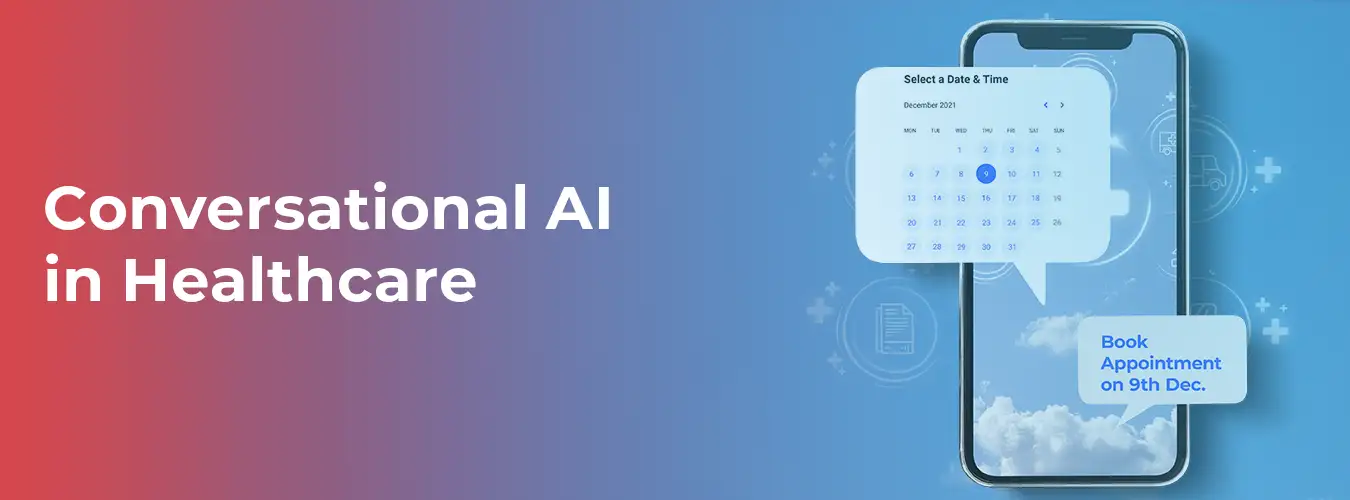- What Is Conversational AI in Healthcare?
- Key Components of Conversational AI in Healthcare:
- Benefits of Conversational AI in Healthcare
- Real-World Applications of Conversational AI in Healthcare
- Challenges and Solutions in Implementing Conversational AI
- Why Choose Macgence for Conversational AI Solutions?
- Key Features of Macgence’s Solutions:
- Future Trends in Conversational AI in Healthcare
Conversational AI in Healthcare: Transforming Patient Interaction
In recent years, conversational AI has significantly impacted various industries, but perhaps its most transformative role is within healthcare. By leveraging natural language processing (NLP) and machine learning, conversational AI offers healthcare professionals and patients innovative solutions that improve communication, enhance patient care, and streamline administrative tasks. At Macgence, we harness this technology to develop tools and datasets that empower healthcare providers to adopt conversational AI effectively.
What Is Conversational AI in Healthcare?
Conversational AI refers to the technology that enables machines to engage in natural, human-like conversations. In the healthcare sector, it is used to assist with a range of activities, from patient interactions and scheduling appointments to providing medical information and aiding clinical decision-making.
Key Components of Conversational AI in Healthcare:
Natural Language Processing (NLP): Allows the AI to understand and interpret human language.
Machine Learning Algorithms: Enable the system to learn from past interactions and improve over time.
Speech Recognition: Converts spoken words into text for analysis.
Text-to-Speech Systems: Facilitate voice responses, making interactions more natural.
Benefits of Conversational AI in Healthcare
1. Improved Patient Experience
Conversational AI platforms help patients get instant answers to their queries, schedule appointments, and access medical advice 24/7. This round-the-clock availability enhances patient satisfaction and reduces the burden on medical staff.
2. Streamlined Administrative Tasks
By automating routine tasks like scheduling and reminders, conversational AI allows healthcare professionals to focus on patient care rather than administrative duties. This leads to more efficient practice management and better utilization of resources.
3. Enhanced Clinical Support
AI-powered tools can assist doctors by providing quick access to medical knowledge, patient history, and drug information. This is particularly useful in emergency settings where time is crucial.
4. Personalized Care
Conversational AI can analyze patient data to offer tailored advice and reminders for medication or follow-up visits. Personalized care plans become easier to implement, helping patients adhere to treatment and recovery schedules more effectively.
Real-World Applications of Conversational AI in Healthcare

1. Virtual Health Assistants: These tools can provide basic medical advice, answer questions, and guide patients through simple procedures.
2. Appointment Scheduling Systems: AI chatbots can manage appointments, send reminders, and reschedule bookings efficiently.
3. Telemedicine: During remote consultations, conversational AI can assist doctors by transcribing conversations and integrating the information into patient records.
4. Symptom Checker Bots: These bots help patients input symptoms and receive preliminary advice on potential medical issues, urging them to seek in-person consultations if necessary.
At Macgence, we develop and provide high-quality training datasets that make these applications more accurate and efficient.
Challenges and Solutions in Implementing Conversational AI
While the benefits are numerous, there are certain challenges that come with implementing conversational AI in healthcare:
1. Data Privacy and Security
Ensuring patient data remains secure and confidential is a top priority. Conversational AI systems need to be compliant with regulations like HIPAA and other relevant standards to protect sensitive information.
Solution: At Macgence, we follow stringent data handling protocols and comply with international data protection regulations to deliver secure and trustworthy AI solutions.
2. Integration with Existing Systems
Integrating AI tools into existing hospital management and EHR (Electronic Health Record) systems can be complex.
Solution: Our AI solutions are designed to integrate seamlessly with current infrastructure, minimizing disruption and facilitating a smooth transition.
3. Language and Cultural Barriers
Healthcare is a global industry, and AI tools must understand various languages and cultural nuances.
Solution: Macgence offers multilingual conversational AI solutions that cater to a diverse patient base, enhancing communication across different demographics.
Why Choose Macgence for Conversational AI Solutions?
At Macgence, we specialize in creating cutting-edge conversational AI solutions for healthcare that address these challenges. Our comprehensive datasets, advanced machine learning models, and expert team ensure that healthcare providers have access to tools that are not only effective but also ethical and secure.
Key Features of Macgence’s Solutions:
High-Quality Training Data: Our extensive datasets support the development of robust, reliable conversational AI tools.
Customization: We tailor solutions to meet the specific needs of our clients, whether it’s a hospital, clinic, or telemedicine provider.
Data Security: We prioritize the protection of patient information and adhere to strict data privacy standards.
Future Trends in Conversational AI in Healthcare
As conversational AI technology evolves, we expect to see:
Greater Use of Voice Recognition: Voice assistants will become more sophisticated, handling more complex interactions.
Enhanced AI-Driven Diagnoses: Conversational AI will assist doctors in diagnosing conditions by analyzing patient conversations.
Integrated AI Care Management: Seamless integration with other AI tools and EHRs for comprehensive patient care.
Macgence is committed to staying ahead of these trends and continuously improving our offerings to support healthcare providers in delivering the best possible care.
Conclusion: The Future is Conversational AI
The adoption of conversational AI in healthcare is revolutionizing how medical professionals interact with patients and manage their workflows. At Macgence, we are proud to support this evolution by providing top-tier datasets and tailored AI solutions that drive innovation and efficiency in the industry.
FAQs
Conversational AI in healthcare must comply with strict data privacy regulations such as HIPAA to ensure patient information remains secure. At Macgence, we implement advanced security measures to protect data integrity and confidentiality.
No, conversational AI is designed to assist and enhance the work of healthcare providers, not replace them. It automates routine tasks, offers preliminary support, and improves efficiency, allowing professionals to focus on patient care.
Training data for conversational AI includes patient interaction transcripts, clinical conversations, and various linguistic datasets. Macgence specializes in providing high-quality, annotated datasets tailored to healthcare needs, ensuring the AI models are accurate and effective.
You Might Like
February 18, 2026
Prebuilt vs Custom AI Training Datasets: Which One Should You Choose?
Data is the fuel that powers artificial intelligence. But just like premium fuel vs. regular unleaded makes a difference in a high-performance engine, the type of data you feed your AI model dictates how well it runs. The global market for AI training datasets is booming, with companies offering everything from generic image libraries to […]
February 17, 2026
Building an AI Dataset? Here’s the Real Timeline Breakdown
We often hear that data is the new oil, but raw data is actually more like crude oil. It’s valuable, but you can’t put it directly into the engine. It needs to be refined. In the world of artificial intelligence, that refinement process is the creation of high-quality datasets. AI models are only as good […]
February 16, 2026
The Hidden Cost of Poorly Labeled Data in Production AI Systems
When an AI system fails in production, the immediate instinct is to blame the model architecture. Teams scramble to tweak hyperparameters, add layers, or switch algorithms entirely. But more often than not, the culprit isn’t the code—it’s the data used to teach it. While companies pour resources into hiring top-tier data scientists and acquiring expensive […]




